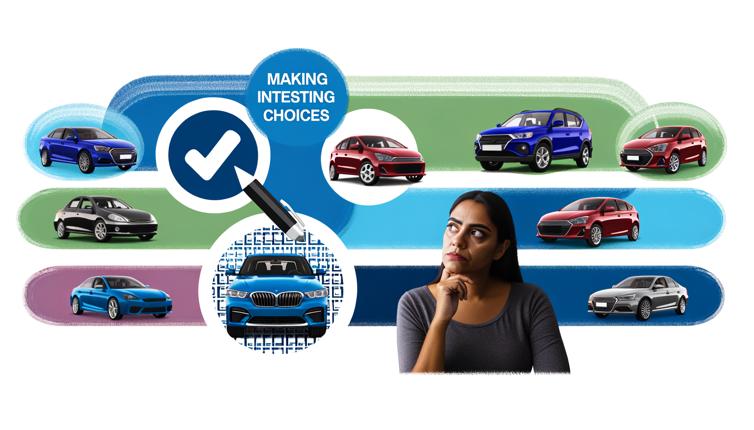Assess Your Needs
Before diving into the process of choosing a car, it's crucial to assess your needs. Consider factors such as the number of passengers you will frequently carry, the type of terrain you will be driving on, and your daily commute distance.,If you have a large family, you may need a spacious SUV or minivan to accommodate everyone comfortably. On the other hand, if you primarily drive alone and value fuel efficiency, a compact car or hybrid vehicle may be a better option.,Additionally, evaluate your lifestyle and hobbies. If you enjoy off-road adventures, a rugged SUV with 4-wheel drive capability would be suitable. If you prioritize luxury and comfort, a sedan or a high-end SUV might be the right choice.
Set a Budget
Setting a budget is a crucial step in choosing a car. Determine how much you can afford to spend on the purchase as well as the maintenance and insurance costs. Be realistic and consider not just the upfront price but also the long-term expenses associated with owning a car.,Consider financing options, if needed, and calculate the monthly payments you can comfortably afford. Don't forget to account for other expenses such as fuel, maintenance, and insurance costs. It's essential to have a clear idea of your budget constraints before moving forward.
Research Different Car Types
Once you have a good understanding of your needs and budget, it's time to research different car types. There are several categories to choose from, including sedans, SUVs, trucks, hybrids, electric vehicles, and more.,Research the features and specifications of different car types and narrow down your options based on your requirements. Consider factors such as fuel efficiency, cargo space, safety features, technology, and reliability. Reading reviews and comparing different models can help you make an informed decision.
Test Drive and Compare
After shortlisting a few car models, it's important to test drive them. Schedule test drives at local dealerships to get a hands-on experience of the cars you are considering. Pay attention to the driving dynamics, comfort, visibility, and overall feel of the vehicle.,While test driving, compare the performance, handling, and comfort of different models. Take note of features that are important to you, such as the infotainment system, safety features, and interior space. By test driving and comparing multiple cars, you can find the one that best fits your needs and preferences.
Consider Long-Term Costs
When choosing a car, it's essential to consider the long-term costs associated with owning it. Evaluate factors such as fuel efficiency, maintenance and repair costs, and depreciation.,Fuel efficiency plays a significant role in the overall cost of owning a car. A more fuel-efficient vehicle can save you money on gas in the long run. Additionally, consider the availability and cost of maintenance and repairs for the make and model you choose.,Furthermore, some cars depreciate at a slower rate than others, which can affect their resale value. Research the resale value of the car you are interested in and consider how it may impact your finances down the line.
Conclusion
Choosing the best car for your needs involves careful consideration of your lifestyle, budget, and usage requirements. By assessing your needs, setting a budget, researching different car types, test driving and comparing models, and considering long-term costs, you can make an informed decision and find the perfect car that meets all your needs. Remember to take your time, gather as much information as possible, and consult with experts if needed. Happy car hunting!









